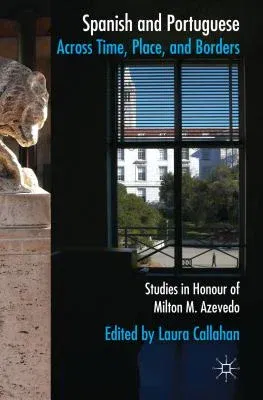Spanish and Portuguese Across Time, Place, and Borders: Studies in Honor of Milton M. Azevedo (2014)Hardcover - 2014, 21 March 2014

Qty
1
Turbo
Ships in 2 - 3 days
In Stock
Free Delivery
Cash on Delivery
15 Days
Free Returns
Secure Checkout

Print Length
262 pages
Language
English
Publisher
Palgrave MacMillan
Date Published
21 Mar 2014
ISBN-10
1137340444
ISBN-13
9781137340443
Description
Product Details
Book Edition:
2014
Book Format:
Hardcover
Country of Origin:
IN
Date Published:
21 March 2014
Dimensions:
21.59 x
14.48 x
2.29 cm
ISBN-10:
1137340444
ISBN-13:
9781137340443
Language:
English
Location:
London
Pages:
262
Publisher:
Weight:
476.27 gm